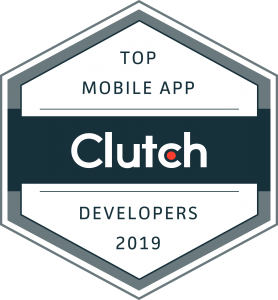In 2019 the total number of global mobile app downloads amounted to 204 billion and users (IOS and Android combined) spent over £120 billion on apps – subscriptions and in-app purchases. This research was gathered by Techcrunch. Apps have become a central piece of the user experience on mobile devices like smartphones and tablets. Many companies invest in customer-facing apps and internal apps to address the growing demand for mobility.
With timelines, costs, features, and platforms, there is a lot to consider when quoting a mobile app development project. Gone are the days where you could write a scope of work for a website project and then tailor that to be used to quote an app development project. As mobile apps moved to the forefront of smartphone usage, we had to adapt our methodology when it comes to quoting a mobile app.
Mobile app development has many variables and its price can range from 5K to 500K. It can be hard to estimate the cost. However, we are here to help you as we don’t charge anything to give you that initial estimation enabling you to get a good idea of the project size and cost of development.
Our mobile app development process
With over 14 years of experience and many software projects under our belt, we’ve been fortunate to work with some very large companies. Many of the most used apps in use today have been accredited to our developers.
Our entire development flow is broken down into defined work phases. Using them to plan, design, build, test, and deliver the final product to our clients in time and within budget.
Let’s start with the first and most important step: Planning & Business Analysis
This process involves time and preparation. Research & Development – We need to ensure that the product we develop will meet our client’s expectations. This thorough planning process helps us to understand the functionality of what is required to identify any unknowns and begin sketching the User Interface.
We carry out meticulous market research to understand if there is any demand for the app idea and to see what your possible competitors are up to. We use a SWOT analysis to identify all your competitor’s strengths and weaknesses so we can make sure that we can make your app that much better.
The second step is all about the Technical Specifications
With your help, we will outline the functional requirements of the app in detail to help us storyboard the idea and then run this past you to ensure it is meeting your requirements. Outlining the coding language, we will use it.
The third step is letting us do all the work – Prototyping and Designing the app
What is a prototype? – you might ask
A prototype is a rudimentary working model of your app. A prototype can help with testing the viability of the idea and can help save a decent amount of time and money in the overall development.
Prototyping an app involves the following process:
- Creating a sketch of the app – this sketch helps with better understanding/working out the logic of the app, showing how different screens can interact with each other, we use a variety of tools Balsamiq and AdobeXD
- Creating wireframes of the app – this helps with visualizing the app structure and helps our app developers with better understanding the logic and functionalities of the app
- Creating the prototype itself – the prototype helps with finding issues and solving them before the app is coded. It allows us to give it to testers to see if user interface logic is acceptable. In turn they provide information on how to improve it from experience.
During this stage there are multiple sketches and wireframes done, with each step of the creative process we help to develop the idea, even more, simplifying some processes to make the app more user-friendly and easier to use.
Development stage

At this stage, we divide the app into two parts: front-end and back-end.
Front-end development involves building the visual part of the app – the user interface UX. Depending on the size of the project we like to get this done in 4-6 weeks so that it can be tested.
Back-end development involves building the framework that supports all the functionalities of the App – this can involve connecting to other frameworks through API’s and often requires an understanding of how the third-party frameworks.
Testing and Quality Assurance
We test every part of the App’s functionality. Ensuring its simple to use and intuitive. The speed of delivery is tested at every stage of the development. Ensuring the coding meets our rigorous standards. We make sure that all the bugs are ironed out and our QA engineers pass it before presenting it to the Client for acceptance.
The final stage of app development involves Publishing the app
At this stage, your app is ready to be submitted to the app store by yourself – you can ask us to help you by guiding you through the steps.
The work on an app is never-ending after its release. Every app needs updates – note that post-release maintenance isn’t included in the initial cost of the mobile app estimate.
Final thoughts
At the end of the day, the cost of app development depends on the app’s complexity, number of integrations and the platforms you want it to run on. To receive a precise price estimate we need to know all about the app’s proposed functions and business goals. Now that you know all about what quoting a mobile app development involves, it will make it easier for you to know what costs it might involve before asking a development company.
